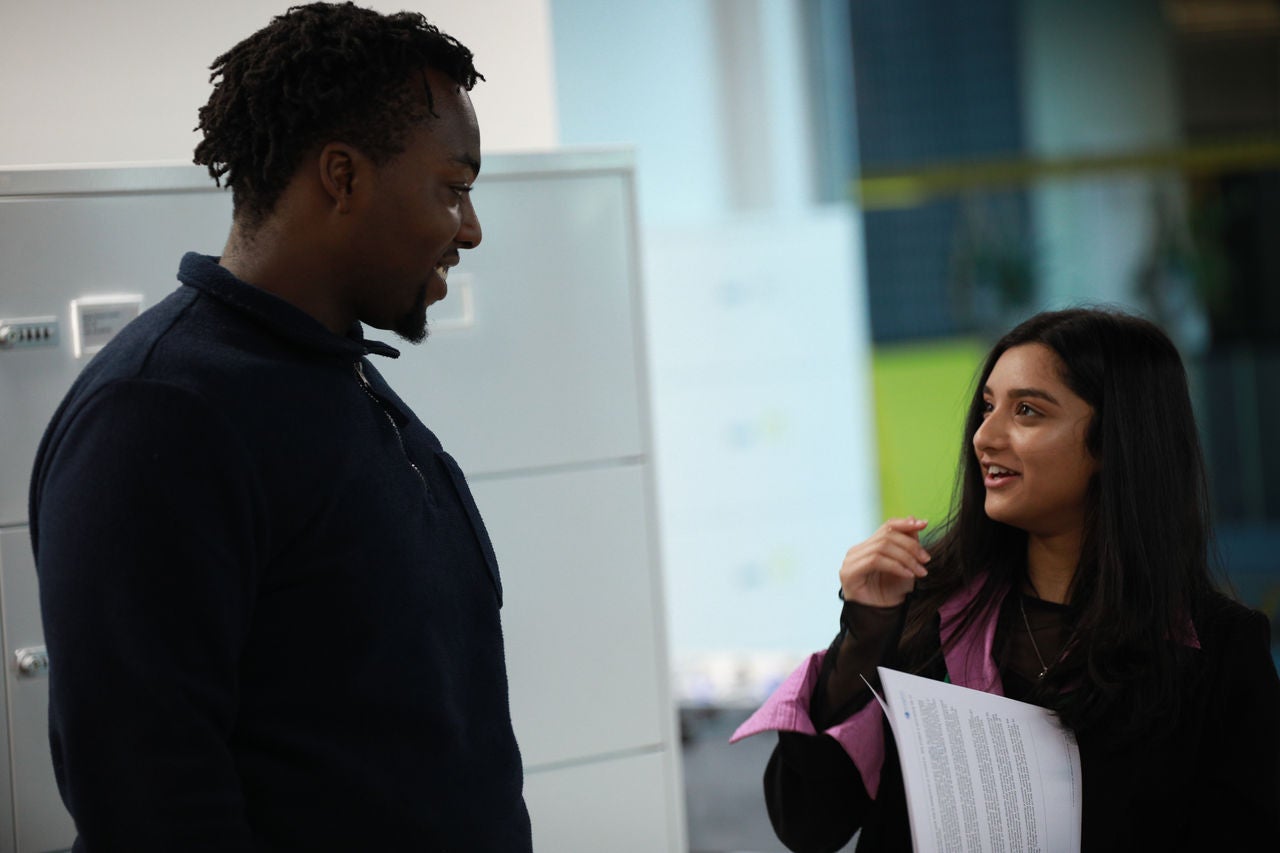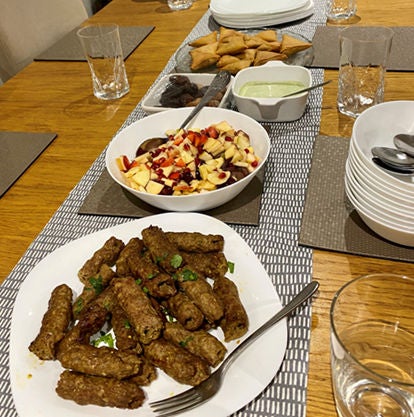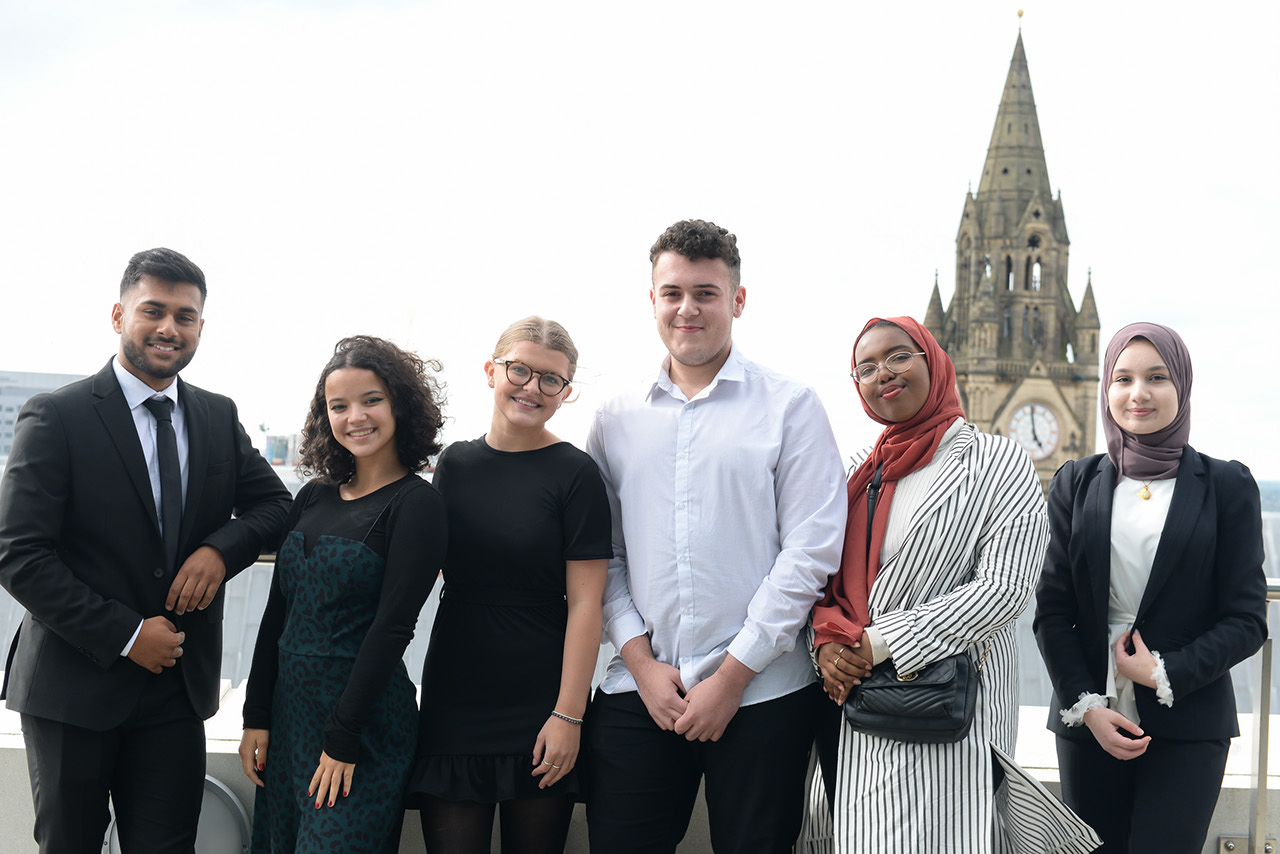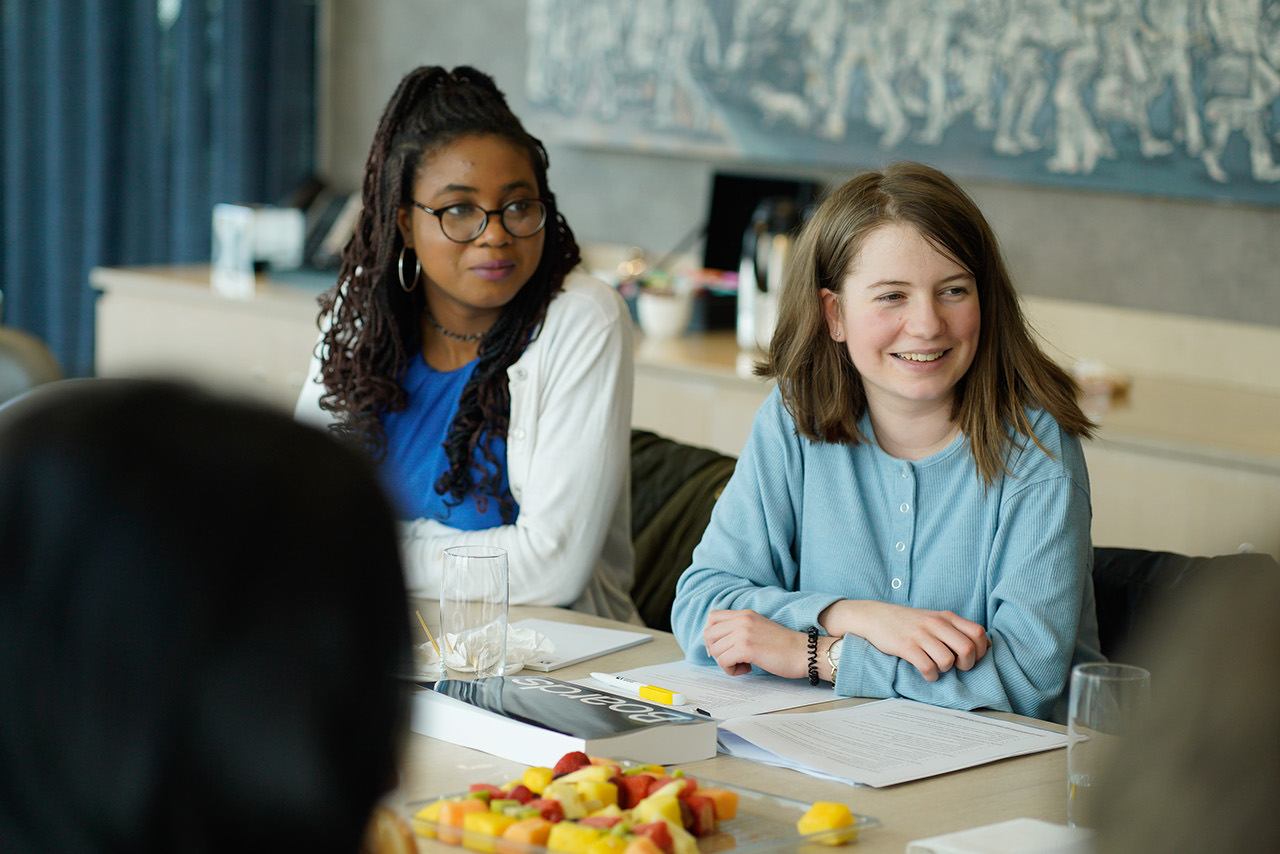The EY Foundation is a charitable company registered in England and Wales and Scotland with registered charity number 1157154 and SC045076. It is also a member firm of Ernst & Young Global Limited

Asalaam alaykum (peace be upon you). Welcome, and thank you for joining me as I welcome the month of Ramadan; I look forward to bringing you along the journey!
Ramadan is a time of sacrifice and gratitude for a Muslim. I will look to fast from sunrise to sunset every day for the next month and yes, that includes not drinking water!
Firstly, why do I choose to fast?
It is a big commitment to give up my normal lifestyle for a whole month, as there is a change to the times I can eat and sleep. The act of giving up allows me to appreciate the luxury of food and take good care of my spiritual health. The act helps teach me discipline as I also restrain from my urges that could affect the way I feel or think. For example, you may see some Muslims give up smoking or swearing during this time.
Even though not eating all day is tiring, especially considering how life continues to go on and other commitments such as work, I never have any regrets. To give something up for the sake of belief is fulfilling and a spiritual awakening. Fasting is part of the five pillars of Islam, along with the act of faith and prayer, charity, and the completion of Hajj.
Ramadan is a time for those practicing to reflect on the blessings in their lives. It serves as a reminder that the less fortunate do not have necessities like food, water, and shelter. Charity in this time is highly encouraged.
Ramadan is a time for those practicing to reflect on the blessings in their lives.
The logistics:
As a practicing Muslim, I normally have to pray 5 times daily. In Ramadan there is emphasis on the morning prayer Fajr (sunrise) and the Maghrib prayer (sunset) as this is the duration of the fast. I will get up around forty minutes before the Fajr calling and have a morning meal called suhoor. To end the fast, I have a meal called iftar. The words suhoor and iftar are of Arabic origin and are used across multiple Muslim countries and simply signify the beginning meal and ending meal.
The fasting chronicles:
Ramadan is an exciting time because there is a lot of unity in a household when taking part. Grudges are let go and there is more mindfulness. Fasting and praying together is a bonding moment. This is my second Ramadan alone. I moved out of my care home shortly after 18; to be Muslim in an environment that doesn’t share the same belief has been a big change for me – this, in particular, can become lonely. I think it’s the combination of having so much time to really look in to yourself and breaking the norm of when people typically eat and sleep.
I tend to start my day with overnight oats and add protein powder, almond butter, and fruit. This breakfast is packed with a lot of nutrition, which leaves me full for longer. However, I am conscious to still eat dense meals as it can become tiring to cook when fasting. Also, when I cook, I tend to try it to see if it tastes right – I know, oops! I needed a solution, and I was lucky to find a meal prep company that caters for halal food (which is very rare) and my phone provider gave me a discount code! This had to be fate, right? I made my selections and had around two weeks of food ready for me, and yes, I was eating full-blown meals at 4am.
Ramadan is an exciting time because there is a lot of unity in a household when taking part. Grudges are let go and there is more mindfulness. Fasting and praying together is a bonding moment
This took care of the food side of things. Then I noticed I was thirsty and dehydrated because I couldn’t chug litres of water after or before eating. So, I went to TikTok as any member of Generation Z would. I discovered solutions such as coconut water, salt and lemon, cucumber, and celery. My mind automatically blocked out celery (I’m not a fan); so, I mixed coconut water with cucumber in hope of extra electrolytes only to find it really wasn’t to my taste. I also discovered cucumbers make me feel nauseous – is this just me? So eventually, I tried celery juice with coconut water and to my surprise it tasted like nothing, which was perfect, so I could feel replenished without feeling the energetic drought for a couple of hours.
Iftar:
A staple of Ramadan is the iftar parties that are hosted. I was invited to my family’s house where a variety of my favourite Pakistani dishes such as pilau and biryani, along with starters such as chapli kebabs, samosa and mango lassi, were served! There is always a fruit salad and each household has their own recipe. Mainly, there is a form of chopped up fruit with mango juice, some add spice but my favourite is when it’s mixed with single cream.
After breaking our fast with the starters, as a collective I pray the Maghrib prayer with my cousins, which I really enjoy. Yes, you’re probably expecting some photos of the main course, but the truth is it was so good I completely forgot to take a photo! Here are the starters...

Working during Ramadan:
Completing tasks which need a good amount of concentration is unpredictable, some days I can get up around 9/10am and be able to work and attend meetings, but I need a nap around 4pm. There can be a lot of mental confusion so that can make the quality of work difficult. However, this is a temporary change. Some days I find it easier to stay awake until 4am and other days I sleep around 11/12pm. I have noticed that I wake up quite a bit before suhoor which can be tiring but it’s because I’m hungry. Luckily, I can go grab a meal from the fridge and warm it up.
The night of power:
There is a period in Ramadan called Laylatul-al-Qadr, this translates to the night of power and works as a form of manifestation; it is known to take place in one of the ten final days of Ramadan and is significant because it’s believed to be the night the Quran was revealed. A prayer during this time could have the power to help bring in what I pray for whether it be success, wealth, or health.
Eid:
The period is ended with Eid where there is a big family gathering and a meal prepared, this has also changed for me because my old house isn’t as accessible to me. Fortunately, I have met a couple friends in the same position and we will celebrate this time together.


